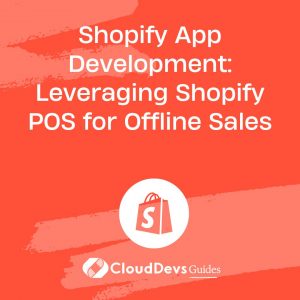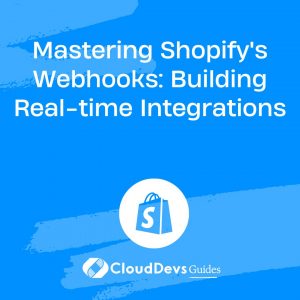Shopify App Development: Monetizing Your Coding Skills
Shopify is one of the most popular e-commerce platforms, empowering businesses to create and manage their online stores. For developers, Shopify presents a lucrative opportunity to monetize coding skills by developing custom apps that extend the platform’s functionality. This article explores how you can tap into the Shopify ecosystem, create valuable apps, and generate income from your coding expertise.
Understanding Shopify App Development
Shopify apps enhance the functionality of Shopify stores, offering merchants additional tools, integrations, and features. As a developer, you can build public apps for the Shopify App Store or private apps tailored to individual businesses. With the right approach, Shopify app development can be a profitable endeavor.
Getting Started with Shopify App Development
To begin your journey in Shopify app development, you need a solid understanding of the Shopify platform, as well as proficiency in web development languages such as JavaScript, HTML, CSS, and a backend language like Ruby on Rails or Node.js.
1. Setting Up Your Development Environment
Before you start coding, set up your development environment. Shopify provides a comprehensive set of tools and libraries to facilitate app development.
Example: Installing Shopify CLI
Shopify CLI (Command Line Interface) simplifies many aspects of app development, such as creating new apps, managing development stores, and deploying your app.
```bash npm install -g @shopify/cli shopify login shopify app create node ```
This command installs the Shopify CLI, logs you into your Shopify account, and creates a new Node.js app.
2. Building Your First Shopify App
Once your environment is ready, you can start building your first app. A basic Shopify app typically interacts with the Shopify API, enabling you to read and write data from the store.
Example: Creating a Basic App with Node.js
Here’s a basic example of how you might create a simple app that lists products from a Shopify store:
```javascript
const express = require('express');
const { Shopify, ApiVersion } = require('@shopify/shopify-api');
const app = express();
Shopify.Context.initialize({
API_KEY: process.env.SHOPIFY_API_KEY,
API_SECRET_KEY: process.env.SHOPIFY_API_SECRET,
SCOPES: ['read_products'],
HOST_NAME: process.env.HOST_NAME,
API_VERSION: ApiVersion.July21,
IS_EMBEDDED_APP: true,
});
app.get('/products', async (req, res) => {
const session = await Shopify.Utils.loadOfflineSession(req.query.shop);
const client = new Shopify.Clients.Rest(session.shop, session.accessToken);
const products = await client.get({ path: 'products' });
res.json(products);
});
app.listen(3000, () => console.log('App is running on port 3000'));
```
This code snippet creates an Express.js app that interacts with the Shopify API to fetch and display products.
3. Adding Advanced Features
As you become more comfortable with Shopify app development, you can start adding advanced features like webhooks, embedded app navigation, and custom admin settings.
Example: Implementing Webhooks
Webhooks allow your app to respond to specific events on the Shopify store, such as when an order is placed or a product is updated.
```javascript
app.post('/webhooks/orders/create', async (req, res) => {
const order = req.body;
console.log(`New order received: ${order.id}`);
res.status(200).send('Webhook received');
});
```
This example demonstrates how to set up a webhook that triggers when a new order is created.
Monetizing Your Shopify App
Once your app is developed, you can begin monetizing it. Here are some common strategies:
1. Subscriptions
Offer your app as a subscription service with tiered pricing. This model provides recurring revenue as long as merchants continue to use your app.
2. One-Time Purchases
Charge a one-time fee for merchants to install and use your app. This model is straightforward and often appealing to merchants looking for a single solution.
3. In-App Purchases
Allow merchants to purchase additional features or services within the app. This model is ideal for apps that offer basic functionality for free but have premium features.
4. Custom Development
Offer custom development services for merchants who need tailored solutions. This approach allows you to charge higher rates for bespoke app development.
Conclusion
Shopify app development offers a profitable avenue for developers looking to monetize their coding skills. By building apps that provide real value to Shopify merchants, you can tap into a growing market and generate a steady income stream. Whether you choose to create public apps for the Shopify App Store or offer custom solutions to individual merchants, the potential for success in Shopify app development is significant.
Further Reading:
Table of Contents









